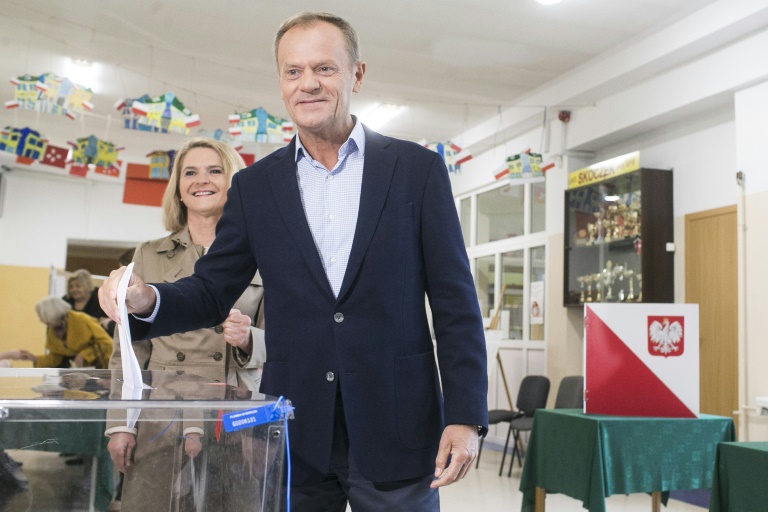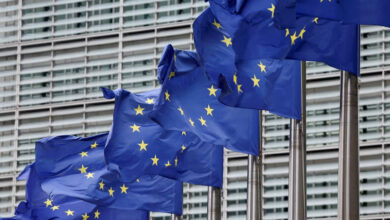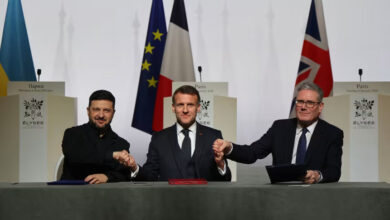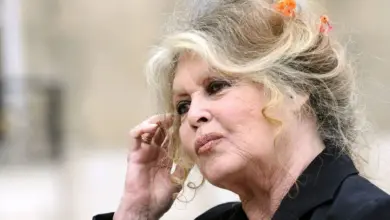
European leaders descend on Brussels on Tuesday to launch the hunt for a new generation of top EU officials in the wake of elections that shook up traditional alliances.
The key job to be filled is that of president of the European Commission, the union’s powerful chief executive, a five-year post currently held by Jean-Claude Juncker.
Under EU treaty law, the European Council of 28 national leaders nominates a commission president, then the new 751-member parliament ratifies their choice.
But the procedure, while seemingly straightforward, masks a complex power struggle between rival states and ideological blocs and between the leaders and parliament itself.
Juncker’s deputy and the center-left challenger for the top job, former Dutch minister Frans Timmermans, compares the ruthless intrigue to “Game of Thrones”.
And the game kicks off on Tuesday, when European Council president Donald Tusk hosts the EU leaders for a summit dinner in Brussels to lay out the ground rules.
Many in Brussels argue that the European project is best served by a “political commission” headed by a president with a mandate from the trans-national parliament.
But most of the leaders think the union’s legitimacy derives from its member states and that the Council should be able to pick one of their own, someone with leadership experience.
The results of the EU elections did not strengthen parliament’s hand — except perhaps for the boost of the larger than expected voter turnout.
While a threatened surge of euroskeptics and far-right populist parties was contained, the pro-Europe center was fragmented, with liberals and Greens gaining ground.
In previous years, a coalition of the socialist S&D and the conservative EPP was able to wield a majority. Now they cannot govern without the liberal ALDE or the Greens.
And this complicates their choice of a “spitzenkandidat” — or lead candidate.
As lead candidate of the EPP, which lost ground but remains the largest voting unit, Bavarian conservative Manfred Weber thinks he should lead the Commission.
“We won the election and the EPP candidate, Manfred Weber, will be the president of the Commission,” insisted party president Joseph Daul as votes were counted.
Despite his confidence, the party has lost ground, starting with 40 seats in the election.
Anyone but Weber?
On paper, eight of the 28 EU leaders hail from EPP parties, but Hungarian premier Viktor Orban’s Fidesz is suspended and Austrian Chancellor Sebastian Kurz was sacked on Monday.
Timmermans, a center-left Dutchman with more executive experience, will have the S&D’s backing and ALDE, while dubious about the process, could back Margrethe Vestager.
The Danish competition commissioner might win the backing of French President Emmanuel Macron, while Germany’s Chancellor Angela Merkel backs Weber.
But, according to one senior European official, if it comes down to a Franco-German clash the leaders may choose to avoid a crisis and back a Timmermans compromise.
“I imagine that a certain number of leaders will try to torpedo a spitzenkandidat, but not all the spitzenkandidaten,” the official said on condition of anonymity.
The big three groups are united in opposition to the far-right euroskeptics, but there are signs the Greens, ALDE and the S&D might prefer a progressive candidate over the EPP.
Vestager is a younger choice, has a certain profile as the woman who took on the US internet giants as a regulator, and would be the first female president.
But she comes from Denmark — a non-core member which opted out of the euro and the Schengen passport-free zone — and would probably not have her home government’s backing.
She might have Macron, but the French leader’s decision to invest himself personally in the campaign only to come in second to Marine Le Pen’s far-right list has weakened him.
Enter Timmermans. “Everyone recognizes his intellectual brio. He has fought for the rule of law with passion,” the senior official said, suggesting the ground is shifting.
Image: AFP / Lukasz GLOWALA European Council president Donald Tusk will host a dinner for EU leaders to lay out the ground rules for selecting a new commission president




